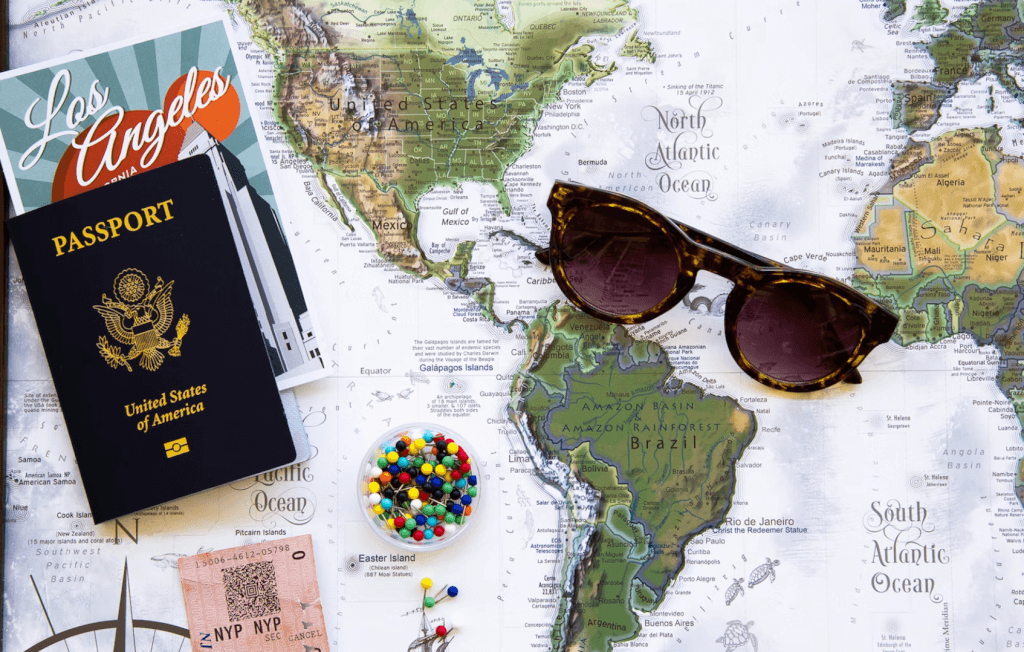Ranked highly the world over for their academic standards, state-of-the-art facilities, and cultural attitudes towards international students, American universities are highly sought-after. If you’re considering pursuing higher education in American universities, you have probably started thinking about the visa application process. The visa interview is usually the most stressful part of the process.
Acing the visa interview means you can proceed with the university enrollment and start making travel arrangements. Failing the interview, however, will halt your dreams of studying in the U.S.
To boost your chances of success, it’s important to prepare in advance and familiarize yourself with all the requirements.
Let’s explore some tips to help you prepare for the US student visa interview.
Submit your Application Online
If you have received provisional admission to an American university, the first thing you should do is to visit the American Embassy in your home country to submit the visa application for a category F-1 student visa.
Pick up your US student F-1 visa form at the American embassy in your country and start the application process. The initial application can also be done online.
Gather All the Documentation you Need for the Visa Interview
You will be required to present some documents during the visa interview. Some of these documents include:
- A passport
- Your visa application
- A university acceptance letter
- Proof of adequate funds
Research further on the documents required and compile them in a folder before the visa interview date.
Brush Up on Your English Skills
US visa application interviews are normally conducted in English and not in your native language. If you don’t speak English regularly, start doing so.
You can start by refreshing your knowledge of English grammar rules and pronunciations. Watching Hollywood movies is another great way to brush up on your conversational English skills.
Create a Positive Impression
The visa officials in the U.S Embassy will want to speak to you alone. Any other person you bring with you will have to sit in the waiting area.
To give a positive impression make sure to dress appropriately and project an air of confidence. Give the officer your undivided attention and answer their questions politely.
Pay close attention to the questions asked and consider your responses before speaking. Keep your responses brief and direct. To further prepare yourself and your responses, conduct research on the most often asked questions at visa interviews.
Talk about Ties to Your Country
All non-immigrant visa applicants are presumed to be intending immigrants under U.S. law until they persuade the consular official that they are not. Therefore, you must be able to demonstrate that your reasons for leaving the United States after graduation outweigh those for staying.
Show proof of ties to your home country. These are the connections you have to your hometown, country of origin, or current abode. For example, assets you own or will inherit can convince visa officers of your likelihood to return to your home country.
Additionally, you must be able to describe how your studies abroad will impact your ability to pursue a future career in your native country.
The questioning officer may inquire about your precise intents or promises of future work, family or other relationships, educational goals, grades, long-term ambitions, and job prospects in your native country.
Prepare to answer the questions in a way that shows you’re strongly connected to your home country and intend to return after completing your studies.
Avoid Rambling and Irrelevant Explanations
Due to the high volume of applications received, visa officers conduct many interviews in a day. They are under pressure to conduct effective interviews in a short period of time.
If you start giving long, rambling explanations with irrelevant details, you’re likely to make a bad impression—which can get you a visa denial. As we’ve noted, keep your answers short and precise.
Talk about Your Family
Talk about your family and dependents (if you have any). Mention how they will be supported when you are studying overseas. Be prepared to discuss how your spouse and children will sustain themselves while you are away if they are staying in your home country.
If you are the family’s primary breadwinner, it may be difficult for you to get a visa. The visa will most likely be rejected if the consular officer believes you’ll be working to support your family instead of studying.
In case you’ll be accompanied by dependents, this is something that the visa officer will also want to discuss.
Take time to learn about the requirements and limitations of dependent visas. For example, your F-2 spouse will not be able to work in the U.S. Be ready to explain how you’ll support them and how they’ll occupy their time.
Adopt a Positive Attitude
Having some level of anxiety about the visa application process is to be expected. However, to ace your visa application interview, you need to remain calm and maintain a positive attitude. By following the tips we’ve outlined above, you can be assured that you have increased your chances of getting approval on your U.S student visa application.
Do you want to learn more about studying abroad and exploring new scholarship opportunities?
Check out our robust scholarship research tool and follow us on Medium, Twitter, Facebook, and LinkedIn!



